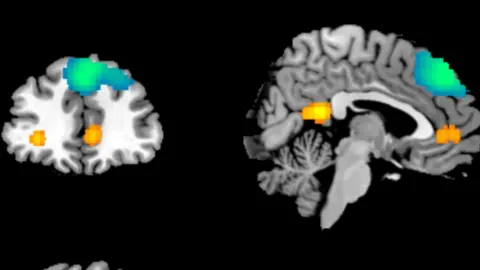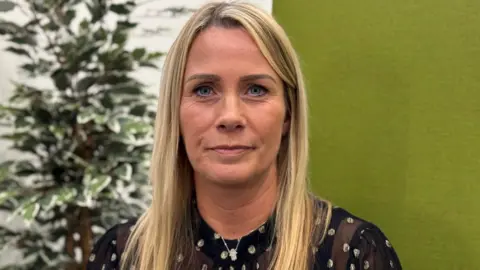

The world’s largest study into how childhood trauma affects the brain has offered new hope to survivors.
Artificial intelligence (AI) was used to re-examine hundreds of brain scans of people who experienced abuse and acute emotional pain as children.
The study, led by the University of Essex, found trauma changes how a young brain develops and affects areas such as problem solving and empathy.
Dr Megan Klabunde said it could lead to new treatment to reverse those effects.
One in three children and young people will experience a potentially traumatic event by the time they reach 18, according to the UK Trauma Council.
It will be usually a dangerous or life-threatening event which causes intense fear.
Smaller previous studies have already shown trauma physically changes a child’s brain, but this latest research used AI to spot new patterns in the data and enhance understanding.
Dr Klabunde, a child clinical and health psychologist and psychology lecturer at the University of Essex, led the study.
She said: “We’ve shown there are clear changes to two big clusters in the brain.
“We now know that problem solving and self-focus are affected, which means someone could struggle with emotions, forming relationships and even understanding their own bodies.”
Memory and decision-making were also influenced, she added.
Valerie was 16 when she experienced female genital mutilation (FGM) in Nigeria.
She said: “Before I knew it, I was on the floor. Someone sitting on my chest and I was mutilated.
“It was the beginning of a life-long trauma for me. I’ve suffered years of physical and emotional pain and shame.”
Valerie always wondered why she reacted to situations differently to other people, and said this research was “like winning the jackpot. It makes so much sense”.
Kari, who was sexually abused as a child, said she had “no words to describe what [the research] means to me”.
She added: “For years I’ve struggled with relationships and always wondered ‘why me?’.
“Now I know it wasn’t my fault.”
Kari and Valerie are members of Essex Trauma Ambassadors, a group which supports survivors and shapes healthcare services.
Many trauma therapies focus on helping people avoid their triggers and address fearful thoughts, but Dr Klabunde found that survivors with no obvious symptoms of post-traumatic stress disorder were still affected by what they had experienced.
“It now seems that current treatments miss an important part of the puzzle,” Dr Klabunde said.
“They also need to look at how trauma impacts the body, sense of self and relationships.
“It brings hope because the right treatments can help to reverse that brain rewiring.” — bbc.com
If you have experienced childhood trauma, help and support is available via BBC Action Line.
 University of Essex
University of Essex‘I was mutilated’

Sorry. No data so far.

